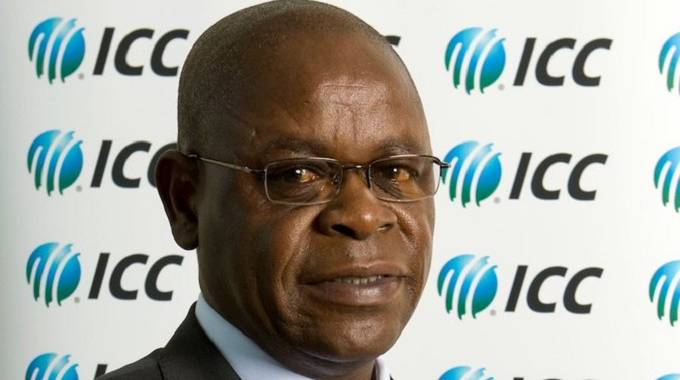Sadly, Chingoka’s innings have come to an end

FORMER Zimbabwe Cricket chairman Peter Chingoka, who died in Harare on Thursday, was more than just a pioneer sports administrator in this country.
He was a visionary, a man who broke racial barriers that used to camouflage the sport he loved as a kid, and rose through the ranks to become its leader.
He didn’t just end up being just a leader, but presided over the most successful period in the history of domestic cricket when the national cricket team, the Chevrons, used to punch above their weight and were a threat to any team in the world.
The 3-0 ODI series whitewash over England during their tour of Zimbabwe in 1996/’97 remains one of the highlights in the history of cricket in this country, especially coming against the background of a drawn two-Test series.
That we could destroy the country that prides itself as the one that gave this game to the world, 3-0 in an ODI series, just less than five years after having joined the big boys when we were granted Test status in July 1992, was the announcement of our arrival on the main stage.
Alistair Campbell, who had led the way in the Test series with a combined 135 runs, the most by a Zimbabwean batsman, was again the star of our batting in the three-match ODI series with a combined 126 runs while Eddo Brandes led the wicket-taking with seven scalps.
His hattrick in the final match, which the Chevrons won by 131 runs, was historic as it marked the first time a Zimbabwean had done that in an ODI match with Brandes going on to take 5/28 in that game.
Chingoka also presided over the Chevrons’ fine performance at the ’99 World Cup in England where our national team famously beat India by three runs in a group match, with henry Olonga taking 3-22, and shocked South Africa by 48 runs with Neil Johnson scoring 76 and then taking 3/27 in a brilliant all-round effort.
The Chevrons’ qualification for the Super Six stage was something that shocked the world, but confirmed our coming of age in this game and between 1997 and 2002 we defeated just about every top team in this game, except for Australia.
Chingoka knew that, for all this success, the game would not be able to sustain all this without spreading the game to the majority of the population, the black players, because the white community, which had dominated the game for years, simply did not have the numbers for that.
It was a difficult period and even Andy Flower, widely recognised as the greatest Zimbabwean cricketer of all-time, acknowledged as much recently.
“Looking back, I wish I had been wiser in the way I responded,” Flower wrote in his foreword for Tatenda Taibu’s autobiography, Keeper of Faith.
“I think that (former South Africa captain) Graeme Smith and the people around him handled a similar situation in South Africa with more wisdom and with a better understanding of the bigger picture.
“It must have been difficult for youngsters such as Tatenda and his friends Hamilton Masakadza, Stuart Matsikenyeri and Vusi Sibanda, but I think they handled themselves extremely well.
“Tatenda’s arrival into the national squad came at a difficult time. For years we had been paid a pittance as international cricketers, and it was only through threatening strike action during the tour of England in 2000 that we managed to start earning some reasonable money.
“This dispute coincided with an even more controversial issue centred around racial quotas in the national side. The recommended quota system from the ZCU [Zimbabwe Cricket Union] was introduced for good reason: promoting black participation and providing opportunities that had previously been denied young black talent.
“We were already a small cricketing nation constantly fighting to justify our international status and, as established players, we believed this quota system would serve to weaken us further.
“We had only just started to receive a fair amount of money from our board, and places in the team were highly sought after. In truth, a number of the players really resented some of the young black cricketers being promoted.”
Chingoka, as the leader of the game, had to deal with all that, find a way to keep the team, and the sport, intact, in the storm of the friction between whites and blacks.
And, given how explosive this issue was, and the fine leadership he provided in managing it, Chingoka should have received more credit, from this game, for saving it at a time when everything could easily have crumbled.
Sadly, cricket has since the turn of the millennium been used by opponents of this country’s leadership as a weapon to fight their wars and that resulted in Chingoka being blacklisted, including being barred from travelling to the United Kingdom, by those same forces who politicised this game.
Because of his commitment to serve his country, and his game, Chingoka was prepared to endure all this suffering because, he always said, what mattered was the bigger picture.
It’s sad that his death has come at a time when this game badly needed his wise counsel, as it tries to negotiate itself from a sticky wicket which saw Zimbabwe Cricket being suspended by the International Cricket Council.
What cannot be denied, or taken away from him, is that he had a fine innings and served his game well.









Comments